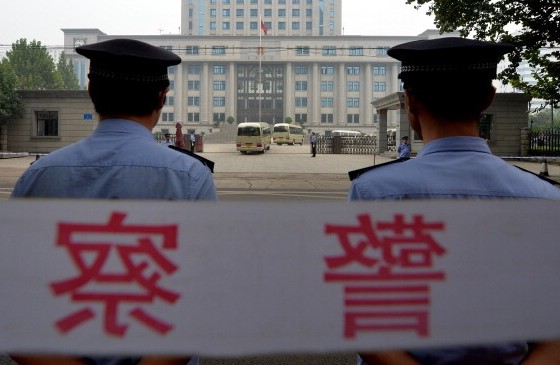BEIJING, China — NEIGHBORS DIDN’T EVEN HEAR the shots that killed Judge Ma Caiyun. They came from a modified ball-bearing gun, wielded by one of two men who broke into the judge’s house, then fled in panic, firing at both Ma and her husband as they chased the intruders.
Ma, 38, was hit in both the stomach and face and died at the hospital. Her husband, a court officer, was saved by his belt buckle, according to a Beijing news report. The attackers — one of whom knew Ma from court, where she had recently ruled on his divorce settlement — killed themselves after a police chase.
